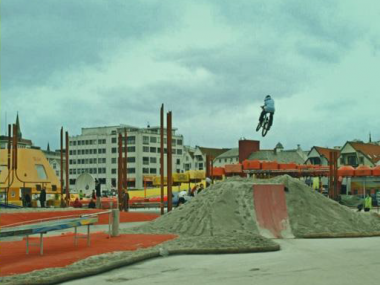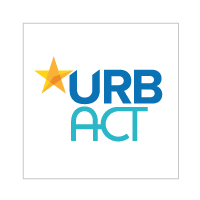The Vitalcities project will prove that there are new pathways to invite citizens
Edited on
11 May 2016“ The Vitalcities project will prove that there are new pathways to invite citizens to become physically active through turning public space into low threshold facilities”
Interview with: Hugo Nunes is the Vice Presidente of the Câmara Municipal de Loulé (vice-mayor) interviewed by Twan de Bruijn, lead expert of Vitalcities project
For the City of Loulé it is the first time to step on board in an international EU-funded project of this kind, while also taking the role as lead partner. Hugo Nunes is the Vice Presidente of the Câmara Municipal de Loulé (vice-mayor). He has professional experience in healthcare management, while also having been involved in national politics as a member of the Portuguese parliament for 4 years. He has background in strategic planning, business planning & strategy.

How and why did you get involved in the URBACT Action Planning Network?
Sports have been a priority area for the last forty years for the municipality of Loulé resulting in the development of sports facilities and infrastructure. Since the revolution it has been a means for us to promote and facilitate social integration and breaking socio-economic barriers. With over 35% of the population active in sport clubs and 50 different clubs, Loulé has been awarded the European City of Sport for 2015 as recognition of the work done. Instead of a finishing point, we decided to use this as a new starting point, to get even more citizens involved. That’s why – while meeting up at several occasions – we decided during the Riga Urban City festival to take the lead in the almost ready consortium of Vitalcities: any last hesitations to take the leading role have been taking away there.
As it seems the city of Loulé has been quite successful with your current sports policies, so what main policy problem is it that you would like to address in the network?
Although a large population is benefiting from sports facilities and sometimes special grant schemes e.g. for excluded citizens, we see in Europe that a growing group of citizens do not meet the recommended levels of physical activity of 30 minutes a day. This is shown in the dramatic increases of cases of chronic diseases resulting in high morbidity, loneliness and social exclusion. Local governments play however a key role as a healthy life style unburdens the health and social care systems. In Loulé we see for instance the need for keeping senior citizens active as life expectancy is rising, as well as there is a risk of social exclusion. Also families are more committed to work, postponing social moments and active living choices. We also see that cardiovascular problems among the population and child obesity are increasing at an alarming rate as a result of sedentary lifestyles.
Of course this is exemplary for Europe as a whole, but at the same time we see that local governments due to budget cuts following the financial and economic crises, had to make difficult choices like e.g. closing sports facilities, sometimes located in or near deprived areas. Therefore we need a new way of looking at things: instead of ‘bringing’ the inactive citizens to the sports facilities, public space itself should be turned into a low threshold facility inviting all citizens to be physically active!
Why exactly did you choose Urbact to find answers to your challenge?
There are several reasons for that but first of all the challenge we are facing is not a local one, but it is truly a European one. Of course solutions then need to be tailor-made and appropriated for the local situation. Since it is a relative new way of how we would like to address the challenge of physical inactivity, we need to exchange ideas and concepts early stage between responsible partners in particular cities as to build solutions. I am sure that building on existing (parts) of knowledge and practical solutions will result in more effective, efficient solutions of better quality. We are convinced that the networking aspect therefore is an important one. URBACT gives us the access to necessary partners and knowledge through its network. The program foresees assistance by dedicated experts, which is primordial for organisations as ours that need to deliver a broad range of services on a daily basis.
It is also important to push this issue on the international agenda, as a way to raise awareness but also to share our solutions and answers. Urbact provides in this as well through an online catalogue of proven recipes that we can build on. One of them that we will take on board is the Placemaking method, promoting integrated bottom up participation for co-creation, ensuring involvement of different stakeholders.
The network has just been approved for a 6-month development phase. What will be the next steps for you as lead partner city?
End of October 2015, we hope to kick off our project here in Loulé, but before that we will also have a first city visit by our Lead Expert, who will help us on behalf of the Urbact III program. At the City Visits the Lead Expert will get a better idea of the local context, the challenge and the relevant parties involved. For the preparation the Lead Expert has provided a questionnaire. The city visits will result in a report, which in itself is a building block in the further process.
At the kick-off itself, we will get to know the Urbact III programme better, we will to get to know each other more and get guidance on the steps in this Phase I of the project. We will discuss how we will approach the many potential new partners to be added to the initial partners in this phase. We will go for an enriched, balanced partnership of motivated people and cities that will deliver the project and make a success out of it!
 Submitted by URBACT on
Submitted by URBACT on
